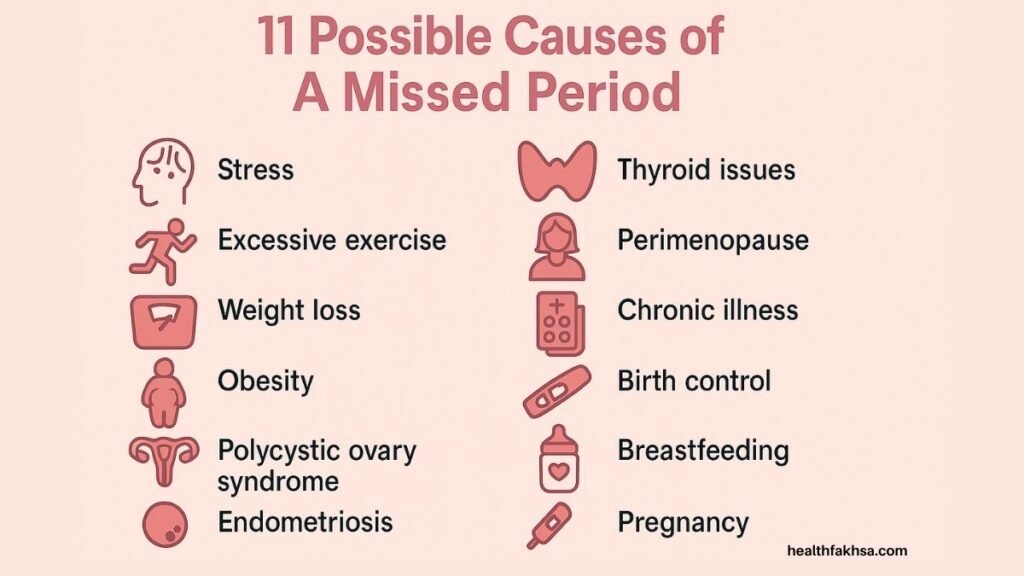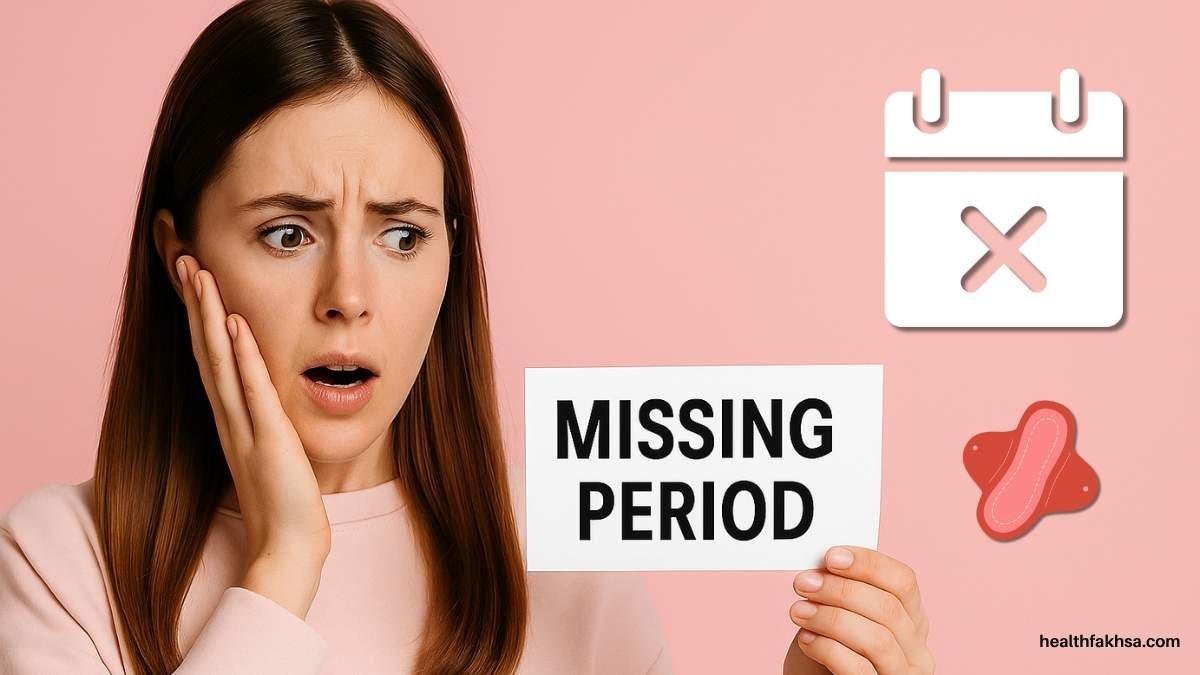Missing a period can send anyone into a spiral of confusion, worry, and endless Google searches. For most, the first thought is pregnancy. But what if you’re not pregnant? What can cause missed periods when nothing seems obviously wrong?
You’re not alone—and no, you’re not imagining it. Missed periods happen more often than most women realize, and they can stem from a range of factors. From everyday stress to deeper health conditions, your menstrual cycle is like a mirror reflecting what’s going on inside your body.
Let’s explore the real reasons behind missed periods and help you figure out when it’s normal, when it’s hormonal, and when it’s time to talk to a doctor.
What Can Cause Missed Periods—Besides Pregnancy?
Pregnancy may be the most common cause of a missed period, but it’s far from the only one. Other factors can affect your hormonal balance and delay or skip your period entirely.
Common causes include:
- Stress: High cortisol levels disrupt your hypothalamus (the part of the brain that regulates hormones).
- Weight Changes: Rapid weight loss or gain, or very low body fat, can mess with your cycle.
- Thyroid Imbalance: Both hypo- and hyperthyroidism can cause irregular or missed periods.
- Excessive Exercise: Overtraining without adequate rest and calories can lead to amenorrhea.
- Polycystic Ovary Syndrome (PCOS): Causes hormonal imbalances that often delay or prevent ovulation.
If you’ve missed more than one cycle and know you’re not pregnant, it’s worth tracking patterns and symptoms.
How Common Are Missed Periods, Really?
You might be surprised how often this happens.
- Up to 20% of women experience irregular cycles at some point.
- Missed periods are especially common in teens and women over 40.
- Birth control, travel, poor sleep, and even emotional trauma can delay menstruation.
So if you’re stressing over one or two missed periods, take a deep breath. It could be your body’s way of asking for a reset.
Can Anemia or Low Iron Cause Missed Periods?
Absolutely—especially if your iron levels are significantly low.
- Iron-deficiency anemia affects your blood oxygen levels, energy, and hormonal function.
- Without enough iron, the body may slow or pause menstruation to conserve energy.
If you’ve been feeling extra tired, pale, short of breath, or dizzy and you’ve missed a period, it might be time for a blood test.
Tip: Boosting iron through leafy greens, lentils, red meat, or supplements can help regulate your cycle naturally.
Can Fibroids Cause Missed Periods or Just Heavy Ones?
Fibroids are non-cancerous growths in the uterus, and while they are more famous for causing heavy bleeding, they can also interfere with your cycle in more complex ways.
- Large fibroids can disrupt the uterine lining or hormonal balance.
- Some may press against nearby organs, indirectly impacting hormone function and ovulation.
- Hormonal imbalances triggered by fibroids can sometimes delay or prevent menstruation altogether.
- Some women with fibroids report missed periods, especially if fibroids affect ovulation.
If you’re experiencing pelvic pain, bloating, or unusually heavy periods followed by skipped ones, it’s worth exploring an ultrasound with your doctor.
Early detection allows for more effective symptom management, and treatment options include medications, non-invasive procedures, or surgery, depending on severity.
Missed Periods While Breastfeeding — What’s Normal?
Breastfeeding delays the return of regular ovulation.
- This natural delay is called lactational amenorrhea.
- You might not get a period for months (even up to a year), especially if you’re exclusively breastfeeding.
- High prolactin levels suppress ovulation, acting as a natural form of birth control in the early months postpartum.
But once your baby starts eating solids or sleeping through the night, your period may begin to return. If your cycles don’t resume after a year, talk to your OB-GYN just to be safe.
Also, keep in mind that ovulation can still occur without a visible period—so it’s possible to become pregnant during breastfeeding if no other contraception is used.
Can Endometriosis Cause Missed Periods or Make Them Worse?
Endometriosis is often linked with painful, heavy periods, but it can also cause irregularity, including missed cycles.
- Scar tissue can distort hormone signaling.
- Inflammation can throw off your body’s monthly rhythm.
- In some cases, endometriosis lesions may form on the ovaries or fallopian tubes, further impacting hormone communication and ovulation timing.
- Hormonal disruption from endometriosis can also lead to unexpected spotting, extreme fatigue, or intensified PMS symptoms.
Some women with endometriosis experience alternating months of heavy bleeding and skipped periods, which makes it harder to track symptoms without a journal or app.
Helpful: Keep a monthly log of pain levels, flow, and skipped periods to share with your doctor. Doing so can help spot subtle patterns and support better diagnosis or treatment options.
When Should You See a Doctor About Missed Periods?
Missing one or two periods might not mean anything serious. But if it’s consistent, getting worse, or paired with other symptoms, it’s time to check in.
You should call your doctor if:
- You’ve missed 3+ periods in a row
- You’re having extreme fatigue or unexplained weight loss
- There’s pelvic pain, acne, or unusual hair growth
- You suspect a thyroid or hormonal disorder
A quick exam, bloodwork, or ultrasound can offer answers—and peace of mind.
Quick Recap: Common Causes of Missed Periods

- Stress or travel
- Rapid weight change
- Excessive exercise
- Thyroid issues
- PCOS or hormonal disorders
- Anemia or low iron
- Fibroids
- Breastfeeding
- Endometriosis
Bottom Line: Your Period Isn’t Broken. It’s Speaking to You.
A missed period is your body sending a signal, not a failure.
Whether it’s stress, iron levels, or a deeper hormonal shift, your body is asking you to slow down, check in, and maybe take action. Don’t ignore it.
You don’t need to panic, but you do need to listen. And when something feels off—trust yourself.

